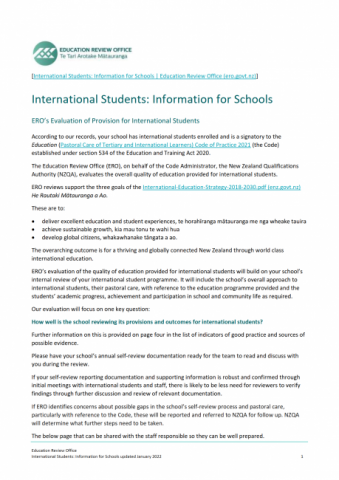International Students: Information for Schools
Published: 31 Mar 2021
This document is provided to schools with international students prior to their ERO review. ERO evaluates the quality of education provided for international students.
- Audience:
- Schools
- Content type:
- Basic page
- Topics:
- International students













